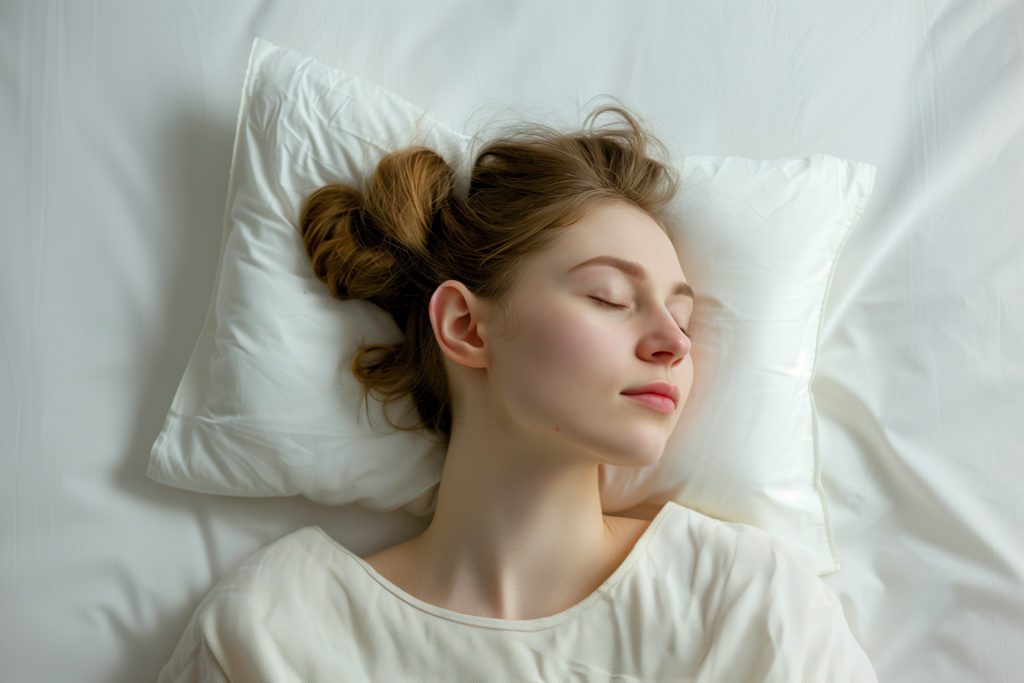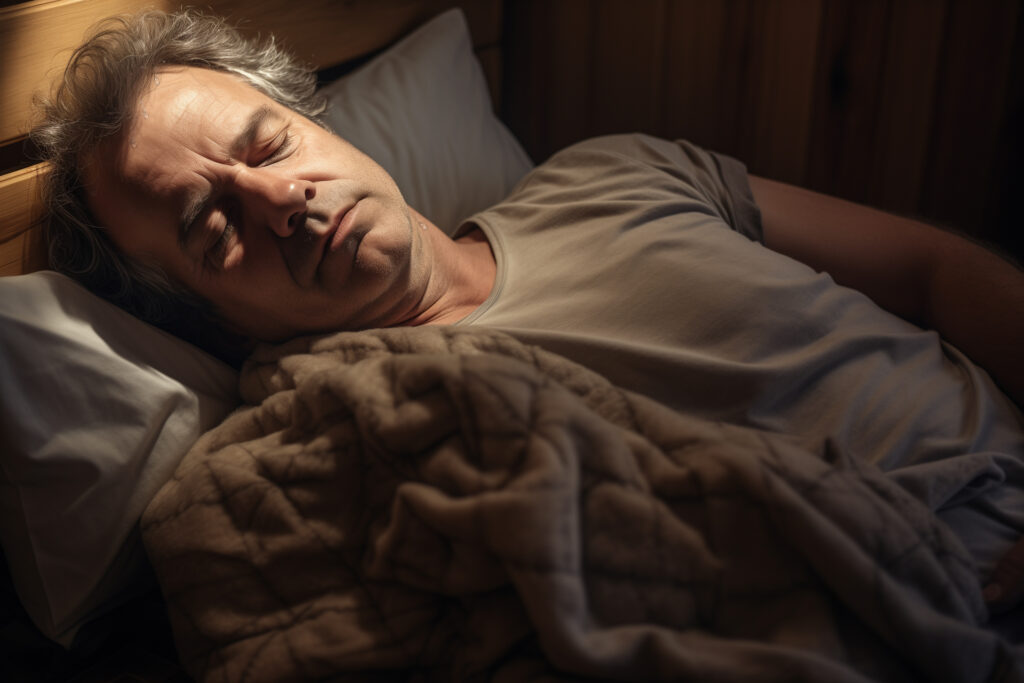
Post-Surgery Dreams: How Anesthesia and Medication Affect Your Sleep
Ever had strange dreams after surgery? Learn how anesthesia, medications, and REM rebound make post-surgery dreams vivid, intense, and sometimes surreal!

If you've just had surgery and now find yourself having strange dreams, you're not alone. Many people experience strange and vivid dreams after surgery, often leaving them wondering: What just happened? These post-surgery dreams can be both intriguing and confusing. But the good news is, there's a scientific explanation for it.
Anesthesia, along with the medications used during recovery, can have a significant impact on how—and if—you dream after surgery. In this article, we'll explore why post-surgery dreams occur and what the role of anesthesia and medications is.
What Causes Dreams After Surgery?
Anesthesia does more than just put you to sleep—it also messes with the way your brain functions during rest, which is why you might experience strange post-surgery dreams once you're back in recovery mode.
One of the main reasons for these dreams is the brain's attempt to regain balance. After being "turned off" by anesthesia, the brain can struggle to re-establish its normal rhythms, especially during REM (Rapid Eye Movement) sleep, which is the stage when dreams typically occur.
A study published in the Journal of Dental Anesthesia and Pain Medicine suggests that the disruption caused by general anesthesia can lead to a buildup of REM sleep after surgery, resulting in a phenomenon known as REM rebound. During REM rebound, your body cramps in all the dreams it missed out on, which may explain why your post-surgery dreams feel more vivid and bizarre than usual.
It's not just anesthesia, though. Medications used after surgery, such as opioids and sedatives, can also stir up your dream state. These medications interact with the brain's chemical pathways, often amplifying dream intensity or even creating vivid hallucinations.
Interestingly, some researchers also propose that the physical trauma of surgery itself could play a part in dreaming. As your body heals, your brain might process the stress and trauma of the procedure through dreaming. In this way, your post-surgery dreams may be your brain's way of handling recovery.
Medications and Their Role in Vivid Dreaming
Opioids, in particular, are frequently used to manage post-surgical pain, and they can have some interesting side effects. According to research published in the Archive of "Science & Practice Perspectives," opioids can alter your brain's neurotransmitter balance, which often leads to more vivid dreams or even hallucinations.
Sedatives and sleep aids prescribed during recovery also affect sleep patterns, particularly REM sleep, and can cause a flood of intense, sometimes eerie dreams. Benzodiazepines, for example, are known to suppress REM sleep at first, but once the effects wear off, your brain might try to "make up for lost time" with a REM rebound, much like with anesthesia.
Some patients even report nightmares or unusually emotional dreams, which can be a side effect of the body processing stress through sleep. Medications designed to keep you comfortable while healing can, unfortunately, have unintended consequences on your dream life, adding an extra layer of surrealism to your recovery.
The Role of Pain and Physical Recovery in Sleep Quality
It's no surprise that post-surgical pain can keep you tossing and turning at night, but did you know it can also influence your dreams? Your body's recovery process plays a significant role in both the quality of your sleep and the intensity of your post-surgery dreams.
Pain itself is a major disruption of sleep. When you're in pain, it's hard to get into the deep stages of sleep, and your body needs to rest and heal. This sleep fragmentation can lead to more frequent awakenings and, subsequently, more opportunities to remember your dreams—especially those weird, unsettling ones that seem to crop up during recovery. The more disrupted your sleep, the more likely you are to experience these vivid dreams.
Inflammation and other physical responses to surgery can also affect your sleep. As your body heals, it triggers processes that sometimes interfere with your ability to achieve restful sleep. A study found that individuals recovering from surgery reported more frequent dreams, often tied to pain or stress.
The Science Behind REM Rebound and Dream Intensity
Normally, REM sleep is the stage of sleep where we dream the most, and after surgery, your body goes through an intense period of catching up on this sleep stage.
REM rebound occurs when your body tries to make up for lost REM sleep. This often happens after anesthesia disrupts your normal sleep cycle or when medications suppress REM sleep initially. When you finally get back to sleeping normally, your brain crams in all the REM sleep it missed, resulting in more frequent and vivid dreams. A study found that patients often experience heightened dream intensity and frequency after surgery due to REM rebound.
But why do these dreams feel so intense? REM rebound can amplify the emotional and sensory aspects of dreams, making them more vivid or surreal.
Coping with Post-Surgery Dreams
If your post-surgery dreams have left you feeling more confused than rested, don't worry—there are ways to manage it.
First, improving your sleep hygiene can go a long way. Try to maintain a regular sleep schedule, even during recovery, and avoid stimulating activities like watching movies.
Relaxation techniques like deep breathing or meditation before bed can help ease the transition into sleep, potentially reducing the intensity of your dreams. Additionally, make sure to stay hydrated and avoid caffeine close to bedtime.
If your dreams are truly distressing or are affecting your ability to sleep, don't hesitate to speak with your doctor. Sometimes, adjusting medications can help reduce the frequency or intensity of your dreams.
The Summary
In summary, post-surgery dreams are a common experience, often caused by a combination of anesthesia, medications, and the body's natural recovery process. These dreams can be vivid, strange, and sometimes unsettling, but they are usually nothing to worry about.
FAQ
Does the duration of anesthesia affect post-surgery sleep quality?
Yes, longer exposure to anesthesia can lead to more pronounced disruptions in sleep-wake cycles. Extended surgeries require higher doses of anesthetic drugs, which can take longer to metabolize, potentially causing grogginess, insomnia, or excessive sleepiness post-surgery.
Are some types of anesthesia more likely to disrupt sleep than others?
Yes, general anesthesia affects brain activity more extensively than regional or local anesthesia, often leading to greater post-operative sleep disturbances. Additionally, intravenous anesthetics may have different effects on sleep compared to inhaled anesthetics, depending on the patient.
Can anesthesia lead to insomnia after surgery?
Yes, general anesthesia can cause sleep disturbances like insomnia. Anesthetic drugs affect brain areas responsible for wakefulness and sleep, potentially leading to temporary sleep irregularities post-surgery.
How long do post-surgery sleep disturbances typically last?
The duration of sleep disturbances after surgery varies but often resolves as the body metabolizes anesthetic agents and recovers from the procedure. Persistent sleep issues should be discussed with a healthcare provider.
Can pre-existing sleep disorders worsen after surgery?
Yes, individuals with pre-existing sleep disorders may experience exacerbated symptoms post-operatively due to anesthesia effects, surgical stress, and medication interactions affecting sleep quality.
Can stress and anxiety related to surgery affect sleep quality?
Yes, the stress and anxiety associated with undergoing surgery can lead to sleep disturbances, including insomnia and vivid dreams, as the body's stress response impacts normal sleep cycles.
How does the hospital environment impact post-surgery sleep?
The hospital setting can contribute to sleep disturbances due to factors like noise, frequent monitoring by medical staff, and unfamiliar surroundings, all of which can disrupt normal sleep patterns during recovery.

Written by
Dr Aqsa
As a Medical Doctor, Dr Aqsa, uses her knowledge to craft complex medical information that is understandable to the general public. For years, she has tried to improve health literacy and empower readers with valuable health knowledge through her articles, blog posts, and educational materials.
Download Pillow
Get help
Press & News
Legal
Connect
X (Twitter)
Company
Copyright © Neybox Digital Ltd.



